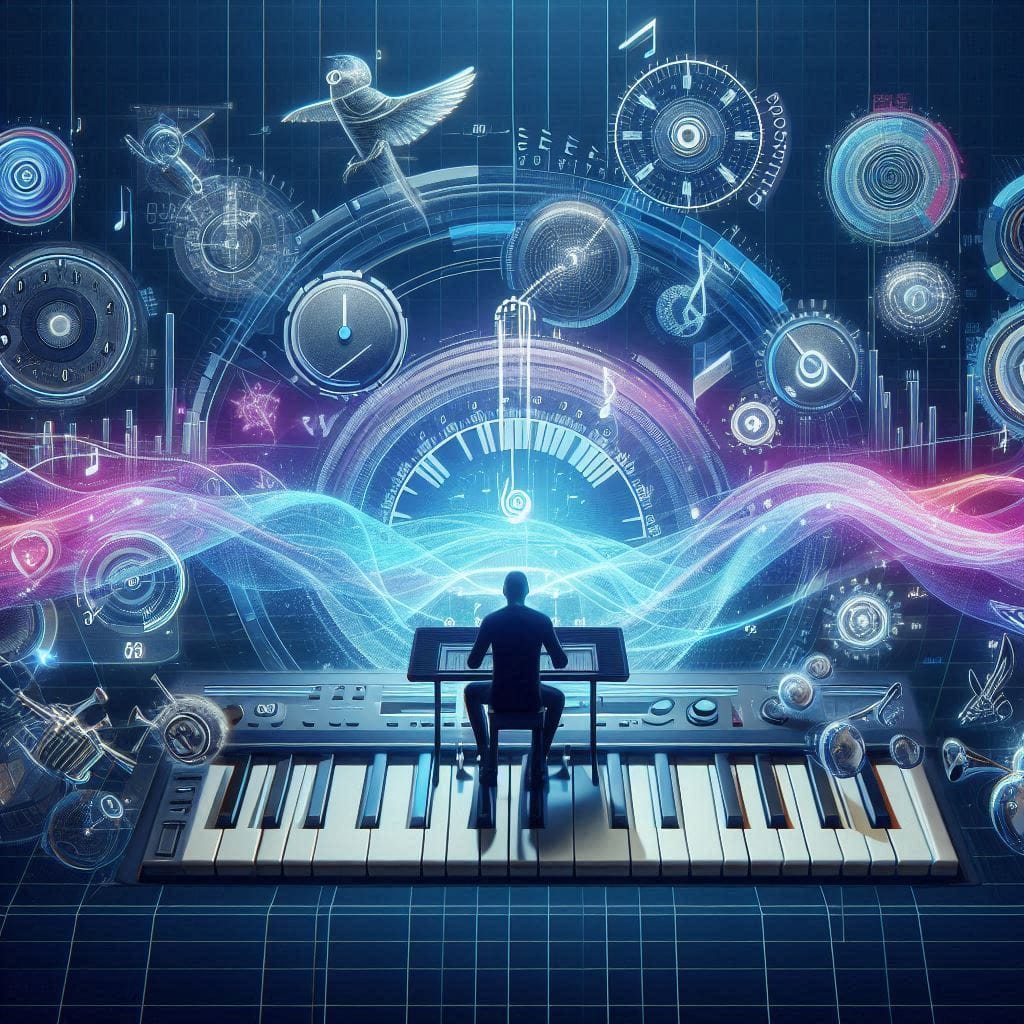Artificial Intelligence (AI) is revolutionizing various fields, and music creation is no exception. AI-powered tools are now capable of assisting in composing music or even creating it entirely from scratch. This blend of technology and creativity is transforming how we think about music production, offering new possibilities while also sparking debates on creativity and authorship. From symphonies to pop tracks, AI is pushing the boundaries of what’s possible in music composition.
Popular AI Models for Music Creation
Several AI models have made significant contributions to the world of music composition. These systems are trained on vast datasets of music and can generate new compositions across a range of genres. Some of the most popular AI tools in this space include:
- OpenAI’s MuseNet: This model is capable of generating multi-instrument compositions across various genres, from classical to jazz and pop. MuseNet can simulate music styles of famous composers, allowing for innovative fusions of genres.

- AIVA (Artificial Intelligence Virtual Artist): AIVA specializes in classical music, composing pieces that have been used in video games, films, and advertisements. It’s particularly skilled at creating complex symphonies and orchestral arrangements.

- Google’s Magenta: Focused on using machine learning for art and music creation, Magenta offers a suite of open-source tools that allow artists and developers to create their own AI-generated music.

- Amper Music: Known for being user-friendly, Amper allows musicians and content creators to compose and customize music with AI-generated tracks that can be used in films, commercials, and other media.

Technology in AI Music Composition
At the core of AI music creation are machine learning algorithms, particularly neural networks, that analyze vast datasets of music. These systems learn patterns in melody, harmony, rhythm, and structure, and then use this knowledge to create new compositions. Techniques like deep learning allow AI to recognize and replicate the complexities of musical styles. Some AI models use Generative Adversarial Networks (GANs), where two neural networks work together to improve the quality of the generated music. One network generates new pieces, while the other critiques them, gradually enhancing the final output. Moreover, AI technologies are often integrated with MIDI (Musical Instrument Digital Interface) data, making it easier for musicians to edit and refine the compositions. AI systems can also work with various Digital Audio Workstations (DAWs), enabling seamless collaboration between humans and machines in music production.
Benefits of AI in Music Creation
AI in music composition offers several advantages:
- Speed and Efficiency: AI can create music much faster than a human composer, allowing for rapid prototyping and multiple iterations. This is especially useful in industries like advertising or video game development where tight deadlines are common.

- Cost-Effective Solutions: Hiring composers for original music can be expensive. AI tools can offer affordable alternatives for smaller projects or indie creators.

- Diverse Styles and Experimentation: AI can generate music in a variety of styles, sometimes combining genres in unexpected ways. This can help musicians explore new creative directions or draw inspiration from genres they may not typically work in.
- Accessibility: AI tools democratize music creation, allowing individuals without formal musical training to compose tracks. This opens up music production to a wider range of people.
Challenges of AI in Music Creation
Despite its promise, AI-driven music creation is not without its challenges:
- Creativity and Emotion: One of the biggest criticisms is that AI lacks the emotional depth and human touch that a traditional composer brings to music. While AI can analyze patterns, it doesn’t truly understand the emotions behind a piece of music, which can result in compositions that feel mechanical or lifeless.
- Copyright and Ownership Issues: With AI generating original music, questions arise around who owns the composition. Should the developers of the AI, the user, or the AI itself (if at all) get credit for the music created?

- Quality Control: While AI can generate a large volume of music quickly, the quality isn’t always consistent. Human oversight is often needed to refine and perfect AI-generated compositions.
- Ethical Concerns: There are debates about whether AI could eventually displace human composers, especially in industries where cost-cutting is prioritized.
Future Expectations
As AI technology advances, it is expected that AI will become even more integrated into the creative process of music production. In the future, AI may evolve from being just a tool for generating raw compositions to becoming a collaborative partner with human musicians. For instance, AI could assist in fine-tuning harmonies, suggesting variations on a theme, or even performing live, real-time composition during concerts. Additionally, AI may further personalize music, creating soundtracks tailored to individual listeners based on their emotional states, preferences, or activities. This could revolutionize industries like wellness, where AI-generated soundscapes help users relax or concentrate.








